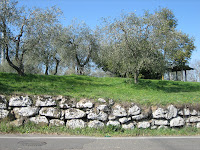 It has been recently launched the European Evaluation Network for Rural Development whose mission is the the introduction and optimization of evaluation systems to measure the impact of european policies on rural development. The possibility to build a network of experts and information represents a critical step to share positive experiences and best practices in order to improve local capacity building in rural areas. This network operates also through a specific web site.
It has been recently launched the European Evaluation Network for Rural Development whose mission is the the introduction and optimization of evaluation systems to measure the impact of european policies on rural development. The possibility to build a network of experts and information represents a critical step to share positive experiences and best practices in order to improve local capacity building in rural areas. This network operates also through a specific web site.The importance of an impartial evaluation system is particularly relevant in Italy because our everyday experience tells us that too often politics negatively influences Government's action in economy at national and local level due to the pressures and pushes of stronger powers or to corruption: these conditions may drive Government to effectively act against the people's interest.
Politicians, sometimes for their incompetence or deliberately, seem not interested in the implications of many interventions adopted in terms of utility, efficient use of public funds, social impacts. A clear example of this is the questionable management of rural areas in Italy with particularly negative consequences for the communities living and working here: environmental and cultural resources eroded, small short run advantages having heavy long run social and environmental costs, real estate speculations and landascapes' distruction, waste of money, incapability to think about local areas in terms of envrionmental, social and economic sustainable development.
Political incompetence in rural management, with the systematic distruction of this heritage (from archaeological to natural goods), will never support rural economy.
Construction condones and tolerated construction abuses have for example eroded many opportunities for a turistic use of many parts of our rural landscape. We can say the same for the scarce promotion of parks and the great difficulties in the realization of new ones.
In Italy the rigorous implementation of evaluation procedures to measure, quantify and qualify the impact of political decision making processes in rural areas is an urgent need above all at local level to efficiently direct the related choices based on public good (rather than the mediation of specific pressures and interests). This "revolutionary" approach is likely to be unavoidable also in consideration of the scarce financial resources available and necessary to make local development a really effective management process.
Nessun commento:
Posta un commento